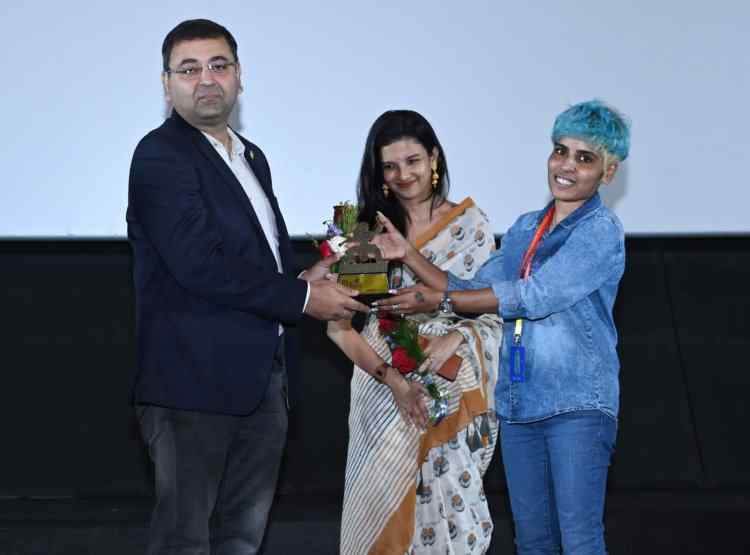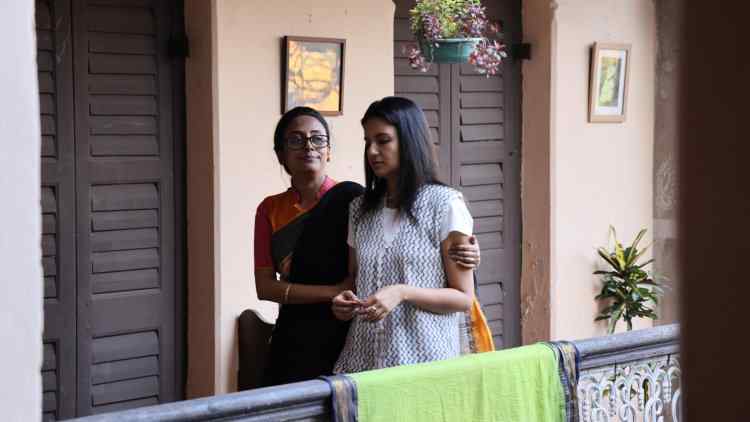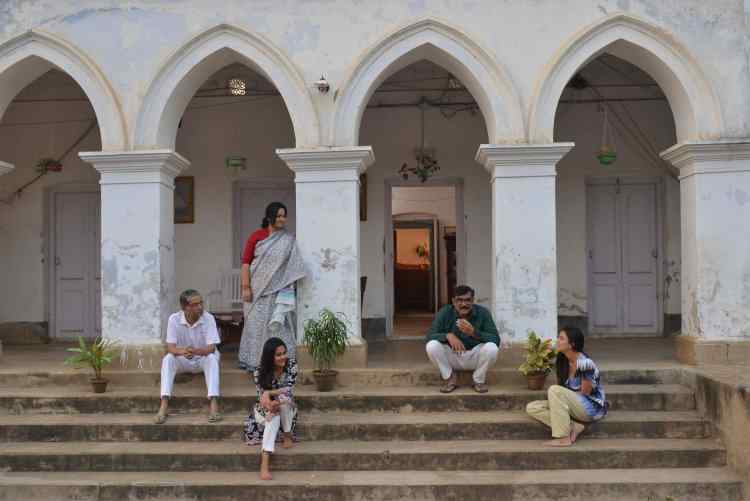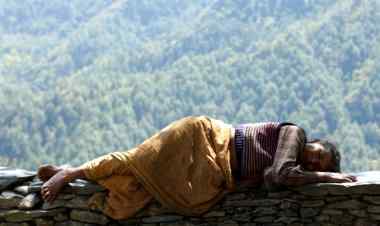Film Review: NIHARIKA – A BEAUTIFUL, UNDERSTATED FILM

Noted Indian film scholar and author, Dr. Shoma A. Chatterji writes that Niharika marks the journey of a young girl, Deepa, through her growing up from her teenage years to maturity where for her, relationships are at variant from the way we see, practice and know them.
Indrasis Acharya has directed some very unusual films in Bengali over the past few years. He is a relatively new entrant into films and is entirely self-trained. But at the same time, he is not afraid of telling his own stories the way he feels they need to be told without compromises – aesthetic, narrative and commercial. His latest feature film Niharika (In the Mist), in Bengali, has been winning accolades at film festivals but is yet to have a theatrical release because there are severe financial problems in the distribution and exhibition of films for directors like Indrasis who choose to tell their own stories in their own way.
Niharika marks the journey of a young girl, Deepa, through her growing up from her teenage years to maturity where for her, relationships are at variance from the way we see, practice and know them. The film is narrated by Deepa (Anuradha Mukherjee) and she is also the protagonist of the film. It unfolds in flashback with Deepa explaining how she has learnt to live with her loneliness, communicating only with herself. She has had a very stormy childhood where her mother, once a dancer, tries to make her childhood happy in her own way. But the extended family in which she lives, makes life impossible for her specially when her mother dies and her alcoholic father with a woman on the side, pushes her maternal uncles to take her within their fold, away to Simultala. She is packed off to Simultala where her younger maternal uncle (Akash Chatterjee) portrayed by Shilajit Majumdar, is a doctor at the local hospital and lives with his wife (Mallika Majumdar) in the ancestral house in Simultala. They don’t have children.

Image: filmmaker Indrasis Acharya
Simultala is a hamlet in Bihar. It is a relatively undeveloped rural area, of interest to people looking for a quiet, out of the way place with a pleasant climate and lovely, rural landscape with a forest and also, arid places surrounding it. Though the very quiet, introverted Deepa was initially reluctant to come away, she accepts and welcomes the shift as her two maternal uncles and their families, though the elder uncle lives elsewhere, are very warm and have her welfare and happiness at heart. She soon gets close to her younger aunt (Mallika Majumdar) who was once a dancer but is now immersed in her role of housewife. But her greater point of attraction is towards her Chhoto Mama (Akash) well into his forties who she begins to desire but cannot express it because he is not prepared to listen to her confessions. He too, feels an intense attraction. He tries to run away from it but later comes to terms. But his conventional mindset stops him
Deepa gets very close to both her uncles and also to Akash’s very affectionate and soft-natured wife but is constantly haunted by her nightmarish past where her own uncle tried to grope her all the time and where her induced sexual relationship with the nurse appointed to take care of her paralysed grandfather. She resents this liaison in retrospect and is not sure if she is lesbian or not. This, added to her severe attraction for her much older Chhoto Mama, which makes her so emotionally disturbed that the uncle suggests psychiatric consultation which she firmly objects to. All Deepa wants is to belong, to someone and she finds that ‘someone’ in her uncle, not in the much younger Rangan.

The story set in the picturesque landscape of Simultala enriches the tapestry not only of the narrative, but also of the characters and their interrelationships. Everything is very quiet, low-key and subtle fitting in totally into the ambience of the landscape and the aura it generates, including the changes in the weather, the soundscape (Sukanta Masumdar) filled with thunder, lightning, rains alternating with the twitter of birds, the sounds of rippling waters striking against the rocks, and everything dotted with the beautiful musical score by Joy Sarkar which permeates the entire film and its story. The film has been shot on location in and around Kolkata, Madhupur, Giridih and Shimultala which is a very significant character in the film. The family picnic with the song belted by Deepa is so situational and mood-centric, that it gives the entire scene a real, emotional feel. The song, Moloyo Batashe from a D.L. Roy creation, adds lyricism to the film.
Though Deepa ultimately agrees to marry Rangan (Aninda Sengupta), the young and quiet manager who works at the local hospital, she never seems content with the relationship. The fact that there is no romance in it is made very obvious to everyone and to the audience. Deepa’s problem has little to do with women’s empowerment, but more to do with searching for her sexual identity and preferences and finding someone to relate to it . The mutual feelings of attraction the uncle and niece realise exist between them is sustained at the level of silent understanding. Deepa wants to spend her life in Simultala with the widowed Akash following the passing away of her aunt but Akash is not ready to break the rules because he respects them and is broken after his wife’s death.
The director has treated the film with feather-touch approaches to the deaths of Deepa’s mother and Akash’s wife including the death of Megha, Deepa and Rangan’s infant daughter. These are underplayed and not allowed to turn into melodrama. The same goes for the marriage of Rangan and Anuradha, not shown but only suggested. Anuradha Mukherjee, reduced to cameos till now, throws up an excellent performance that can be a model in understatement for actors to follow. Indrasis has given a complete makeover to singer Shilajit in this role where it takes some time to even recognize him. More directors should look out for him. The other characters too, are very well-played including the silent and caring wife of Akash.

The cinematography by Santanu Dey is mesmerising specially because of his complete veering away from fluorescent lights replaced with filament bulbs that were prevalent in the areas where the film was shot. He invests the frames with the right balance between light and dark right through the film. He uses long shots of the landscape, dimly lit shots when Akash peeps into Deepa’s bedroom, the semi-lit dining table where they are served dinner and so on. The location shots are mainly bright captured in long shots and mid-long shots, sometimes punctured with the rains.
You come away from the theatre carrying the aura of the film with you and feel haunted by the characters and their strange dilemmas. This is by far, Indrasis Acharya’s best film till date. To handle incestuous feelings within the family with such wonderful restraint gives the film a classic texture and a dark and deep mood. This is very real but are we ready to admit its existence?

***
What's Your Reaction?

































































